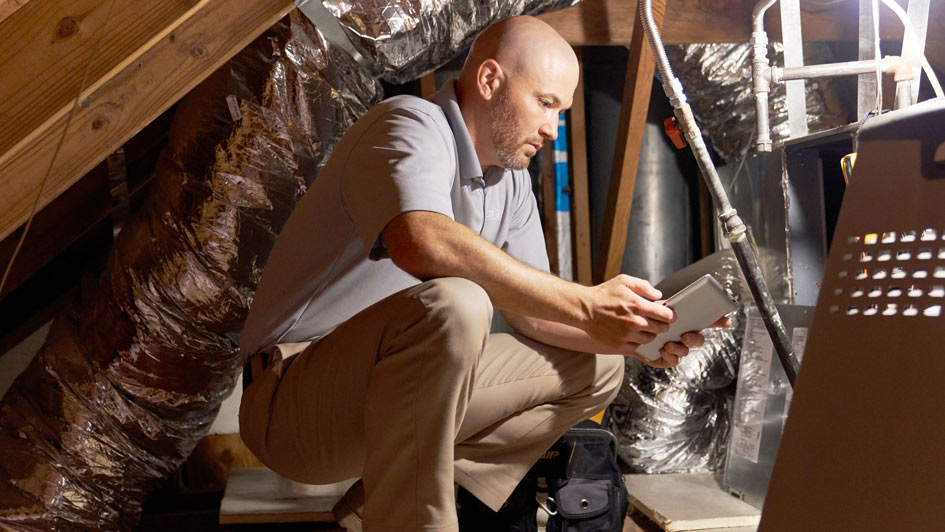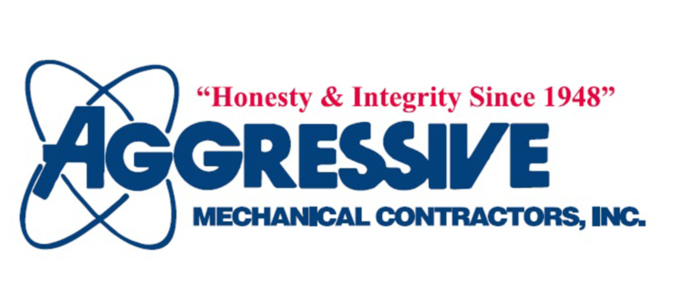
Where you aware that more than 50% of your home’s energy costs are from your heating and cooling? This is why it’s so important to secure an energy-efficient HVAC system.
Furnace efficiency standards were last modified to an Annual Fuel Utilization Efficiency (AFUE) rating of 80% in 2015. This rating system illustrates how effective your furnace is at converting natural gas into heat. An AFUE rating of 80% means your furnace loses about 20% of the fuel it uses while generating heat.
In 2022, the U.S. government revealed new energy-efficiency standards for residential gas furnaces that would significantly reduce emissions, save money and stimulate sustainability.
The updated standards are expected to:
- Save Americans $1.9 billion annually.
- Reduce carbon emissions by 373 million metric tons and methane emissions by 5.1 million tons over three decades, the equivalent of what 61 million homes emit yearly.
Starting in 2029, the proposed rule would require all new gas furnaces to feature AFUE ratings of 95%. This means furnaces would convert nearly 100% of the gas into usable heat.
So what does all of this mean for your existing furnace in 2023? As of now, not much, as the proposed rule won't go into effect until 2029 at the earliest and does not affect furnaces that are already in use.
But if you are considering furnace replacement in soon, highly energy-efficient furnaces are ready and available. Learn how these furnaces can save you money on your utility bills.
Guide to Condensing Furnaces
How Condensing Furnaces Work
A condensing furnace is a style of heating system that uses a secondary heat exchanger to capture wasted heat from the furnace's exhaust gases. This decreases the extent of energy wasted, improves energy efficiency and lowers CO2 emissions. It also demands less natural gas to generate the same rate of heat when compared to other types of furnaces.
How Condensing Furnaces Differ from Non-Condensing Furnaces
The biggest difference between a condensing furnace and a non-condensing furnace is that the former uses a secondary heat exchanger to collect any wasted heat from its exhaust gases, while the latter does not.
How Long Condensing Furnaces Last
The life span of a condensing furnace is dependent on the brand, model and other factors. Usually, a condensing furnace will last between 10-20 years with appropriate maintenance and regular service. If you don’t schedule routine maintenance, the equipment may struggle to perform as well, ultimately failing earlier than anticipated.
Why Condensing Furnaces Cost More
Generally, condensing furnaces type of system is much more efficient than standard, single-speed furnaces, as it only consumes the minimum amount of energy required to heat your home, saving you money in the long run.
Many variable-speed furnaces are condensing furnaces, although a few are available in non-condensing models with lower AFUE ratings. In order for a furnace to be classified as a condensing furnace, it must offer an AFUE rating of 90% or higher.
Do Variable-Speed Furnaces Run Nonstop?
A variable-speed furnace doesn’t need to stay on all the time. Instead, it runs at different speeds depending on the temperature in your Neptune City home as well as the amount of energy it uses to reach that temperature.
When sufficient energy is demanded to maintain your desired temperature level, the furnace will increase to a higher speed in order to keep up with demand. Precise fan speeds offer more efficient heating in your home while also providing quieter operation.
Guide to Two-Stage Furnaces
Two-Stage Furnaces: What They Are and How They Work
As the name suggests, a furnace with two levels of operating (high or low) is called a two-stage furnace. On the low stage, the furnace runs at a reduced capacity as a way to maintain the chosen temperature at your home more efficiently. During the high stage, the furnace will instead function at peak capacity to satisfy demands for increased heat. With a two-stage furnace, you can enjoy improved energy efficiency and balanced temperatures throughout your home.
While two-stage furnaces are very efficient, not all all types are condensing furnaces.
Does a Two-Stage Furnace Function All the Time?
A two-stage furnace won’t run all the time. In the low stage of operation, the furnace operates at reduced capacity in order to sustain a planned temperature more efficiently within your home. When additional energy is needed to sustain the set temperature, the furnace will switch to its high stage and operates at full capacity. For this reason, two-stage furnaces are powerful enough to help reduce energy costs without operating around the clock.
Comparing Two-Stage and Variable-Speed Furnaces
Two-stage furnaces have two stages of functionality, low and high. During the low stage, the furnace works at reduced capacity to help uphold a desired temperature within your home. When more warmth or cooling is necessary, the furnace will shift to its high stage and operate at maximum capacity.
Variable-speed furnaces, meanwhile, can function at multiple speeds in order to sustain a more precise temperature at home. Such precise functionality can also help reduce energy costs, as it is not constantly running on full power like many two-stage furnaces do.
Differences Between One- and Two-Stage Furnaces
One-stage furnaces have a single stage of operation and operate either at full power or not at all. As a result, the furnace is always running in order to maintain a desired level of comfort at home.
Two-stage furnaces, by comparison, have two stages of operation, low and high. During the low stage, the furnace runs at reduced capacity in order to maintain the desired temperature more efficiently. When more warmth or cooling is needed, the furnace will shift to its high stage and operate at peak capacity.
Schedule Your Furnace Installation with Aggressive Mechanical Today
Making sense of modern furnace technology can be confusing. That’s why Aggressive Mechanical specialists are here to help with a free, no-pressure estimate for furnace installation. We’ll assess your home, your heating requirements and your budget before helping you find the right solution. Call us at 732-502-9300 to get started today!
